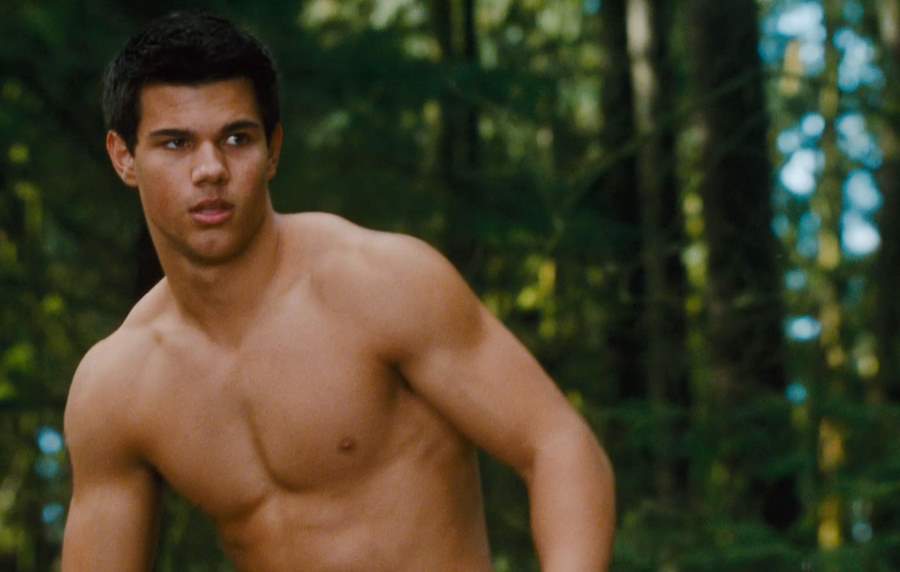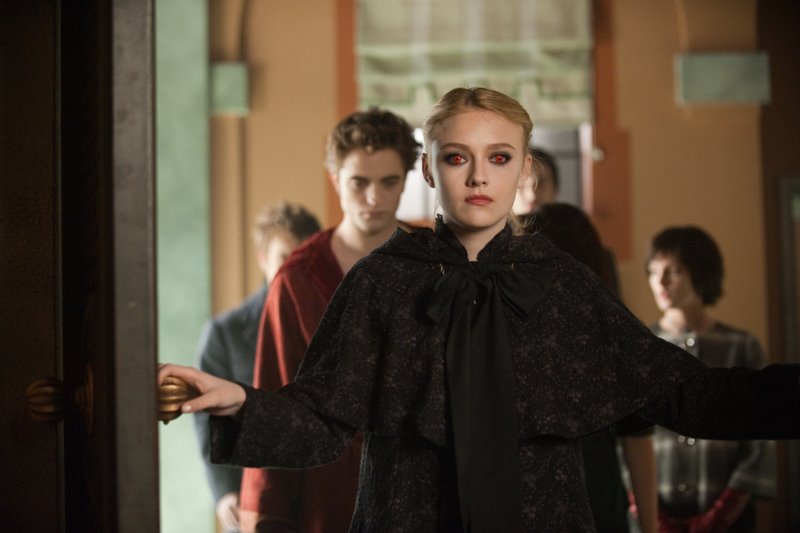
The price I’ve paid for my mild appreciation for the first Twilight movie hasn’t been small. I turned to Stephanie Meyer’s source novels with my usual nagging desire to find out what happened next and sail on the zephyr of the zeitgeist, and found myself continuing to admire her twisted character dynamics and cunning metaphors even whilst finding her writing abysmal, and noticing the fact that the four novels between them sustain enough plot for no more than two, in between a lot of soap opera padding. Hero Edward Cullen’s increasingly narcissistic and unsympathetic patronisation of heroine Bella, and her droning, often intolerable solipsism, are all the more unflatteringly contrasted by the fact that Meyer came up with a far superior character in the lovable, intense Native American shape-shifter Jacob Black.

This was easy enough to discern on the page: in the film adaptation, it’s plainly galling, because the performance of Robert Pattinson as Edward has become downright lazy, whilst his decreasing physical presence gives us a grotesque piece of soft-core pornography in which he removes his shirt to reveal a lame six-pack attached to a scrawny frame. Comparing him to the towering, powerful-looking Taylor Lautner as Jacob isn’t just unflattering, it’s downright perverse, and the fact that the plot requires Kristen Stewart’s Bella to find this paltry white bread perpetually more alluring than the brawny, decent, if volatile Jacob, accidentally borders on institutionally racist. It wouldn’t matter so much if Pattinson’s character and performance had any whiff of real darkness or charm, but his Edward remains less than a cipher. Stewart, whose performance did a lot to hold the first film together, goes through the paces here, and Lautner is hamstrung by Jacob’s transformation into another glowering bore. Ashley Greene is cute and vivacious as Alice

Otherwise, director Chris Weitz and screenwriter Melissa Rosenberg stick close to the letter of Meyer’s book, which is a serious problem considering that tome’s utterly diffuse narrative rarely sharpens to a point, with some too-brief moments of action and threat that Weitz admittedly handles well even as he lets the rest of the film drift along at the pace of a broken-down river barge. Rosenberg’s script can only intermittently inject some of the first film’s knowing edge of reflexive humour (as in costar Anna Kendrick’s amusing riff on zombie movies). A brawl of werewolves evokes the similarly fiery polar bear battle in Weitz’s superior The Golden Compass, and the only sequence that really expands on the book is a well-done chase sequence in which Rachelle Lefevre’s charismatic but underused villainess Victoria eludes a pack of those hairy wild things after assaulting an Indian patriarch. And there’s a strong, queasy sequence in which the menacing cabal of über-vampires, the Volturi, led by Michael Sheen and pint-sized dominatrix Dakota Fanning, threaten our heroes and wait to lunch on a mob of clueless tourists, which evokes something of the horror that’s otherwise entirely neutered in favour of endless dialogue between flimsily tortured romantic figures. A particularly risible psychic vision of Bella running with Edward through the woods in future, vampiric bliss is the sort of sloppy cornball I defy anyone over the age of ten to remain straight-faced at. You know something’s seriously wrong when Fanning’s character has more erotic punch than the heroine. It’s not the longest or the worst of films, but it’s hard to care about the distinction.

